QuestionKaren here is my parimeters:
nitrate-0
nitrite-.5
GH(total hardness) 300+
KH (total alkalinity) 300+
PH-8.4+
my amonia is ideal. I have different water than my local petstore, i have well water, when they have city water. The reason why my tropical fish (tetra's) died was because of amonia. The petstore lady told me not to do daily partial water changes, which i should have listened to my mother. But I let the tank cycle, but now im concerned with the ph. But then i heard that the ph will become more acidic with time, is that true? I would really love to get some more tropical fish, but i don't want to kill anymore. The petstore suggested chilids, but i only have a 10 gallon fish tank. I'm a true beginner at this, so i want to be able to get a 10 gallon fish tank going with no problems before i start a 50 gallon fish tank and use my 10 gallon as a filtration. Also i don't plan on breeding my fish, I just want healthy fish that my family can enjoy.
Thanks for your help Karen, I really appreciate it. :)
Kaylee
-------------------------
Followup To
Question -
Karen, I have had my tank set up for over a month. I have very hard water. Right now I only have 2 catfish, my other tropical fish died. My amonia is in check. Although my ph is very high. I tried buffering my tank with baking soda, but it didn't seem to do anything, then i bought a wardley bullseye 7.0, and it didn't drop my ph levels either. I'm wondering if the hard water is just too much. my question is how to soften my water without buying a water softener, beings that they are so pricey. Thanks for ur help.
Kaylee
Answer -
Dear Kaylee,
Please don't try to adjust the pH anymore. This is very likely the cause of your fish loss...I'm very sorry to hear about your trouble--- but here's why-
The real truth is that all fish thrive in a stable and not specific water chemistry. Here's why-
Adjusting your pH with additives can do more harm than good... You see, it may be hard to understand (sometimes I even have trouble!) but when your water's hard it will have a high and good buffering capacity to maintain that high pH in most cases. Adding pH lowering chemicals or powders often lower the pH for a while, but your natural buffers in your aquarium water just end up raising the pH up and as a result more artificial buffers are added and the result is a pH rollercoaster for the poor fish! Flucuations of pH can severely stress fish. So besides all that, hardwater contains high levels of minerals and the buffering capacity literally absorbs or "eats" up pH lowering additives you may continue to add until your buffering capacity is all exhausted.
In order to lower pH Filtering your water through peat can greatly help to lower the pH and is a reliable method if the peat is changed regularly. Use aquarium peat only. Adding several large pieces of driftwood can also lower the pH also but keep in mind you must doctor the new aquarium water when you make those vital water changes. This is a lot of work and time.
*And the real truth is- It isn't neccesary.
How high is your pH? My water is very hard and I know of many aquarists whom are stuck with hard water, but don't doctor it and still keep and breed fish! This is because the majority of fish commonly kept are easily adaptable to less-than-ideal water chemistry. They even thrive in it. As long as it isn't very extreme (perhaps past 8.0) and not below (6.5) you're just fine. While I'm not sure of your exact parameters I do know my fish kept in hard water do excellent, many spawn and show brilliant colors. I also do know captive raised fish are often not kept in a pH range that they may be living in, in the wild. For those fish are already adaptable and fortunately also most fish in your local petstores are likely kept in the same source and water parameters in that local area and is usually the same as your tap water is and there is often little worry.
I am unsure of why your fish passed away because of the little details you mentioned. It could have been nitrites, or many other factors leading to poor water quality that caused their unfortunate endings. You could have also owned some rather delicate fish. But without enough details and descriptions, I cannot point to anyone cause.
For now I would not try to adjust your water. Make sure it isn't just fine where it's at before trying to worry about it again. Just remember fish thrive in a stable and not specific water chemistry. And with plenty of partial water changes, that is all most fish will ever need.
I really hope this helps! Feel free to write with anymore questions or concerns you may have.
Best wishes and happy fishkeeping!
Karen~
AnswerKaylee,
Thanks for getting to me so quickly!
Your parameters as far as Hardness and pH should be just fine for most community fish. Having nitrite readings in your aquarium is not a very good sign, your aquarium must still be cycling! Please don't listen to the pet store lady. I know they may be educated but the real truth is partial water changes are VITAL and ESSENTAIL. There is nothing better you can do for your fish. And if your aquarium is still cycling any trace of ammonia or nitrite is very toxic to fish. You'll need to do water changes to lower your ammonia below 1.0ppm at least and preferably much below that. This may require a 30-50% water change or more in order to dilute the pollution level that will dangerously harm your fish. Water changes are not harmful to your fish. They are beneficial! You must do them. If you don't-- pollutants, minerals, and other compounds will build up, the pH will drop and your fish can become stunted. Not by a small tank size, but the high pollution level. If you let your aquarium go for weeks without water changes, and you finally do one. It can hurt your fish by the sudden addition of fresh water when they are adapted and use to the old dirty water. This is often where aquarists get the notion that water changes are bad. They let aquariums go for weeks and weeks and then decide to change some water and the sudden shock can cause fish loss. And they decided then "new water kills!" Of course this is cannot be farther from the truth.
All aquarists swear by frequent water changes and I myself am a big fan of them. Your fish just cannot live in the same old water. And topping off the aquarium from evaporated water does not equal a water change either. For only pure water leaves the aquarum and minerals and other buildup pollutants are left. Changing water actually helps to duplicate a fishes natural enviroment. In lakes and streams, rivers and oceans, ponds and swamps, fish are always in fresh clean water that is free from pollutants. Due to the large body of water and usually a continual run of fresh water washing waste away, most fish often are never subject to poor water quality unless it was man-made.
Not to sound bossy about about this all. ;-) but these are the facts to prove the opinions of other aquarists wrong about changing water. The more the merrier.
I know wellwater is commonly hard but be certain that your aquarium has no rocks or even gravel that can raise the hardness of your water. Some rocks release minerals that raise the pH and hardness of the water to astounding levels. Check these.
I think you'll probably be able to adapt your fish to your water chemistry with a slow acclimation period. I do not think it's your hard water that has harmed your fish. Much more likely dangerous ammonia levels. This is much more harmful than hard water.
Be sure to fully cycle your aquarium before adding anymore fish. I wouldn't recommend cichlids for your 10gal. There are small species for small tanks but It would be best for you to wait until you get a larger aquarium and research thoroughly on the species that interests you. Cichlids are quite different from any other fish.
You'll need to test for these parameters, ammonia, nitrite, nitrate everyday during your cycling (which means allowing special beneficial bacteria time to establish that remove dangerous ammonia and other toxic compounds produced by the fish) This process takes time and 4-6 weeks is the usual sometimes it's shorter.
The presence of nitrites and no Nitrate indicate your aquarium must not be done cycling. When your ammonia and nitrite have dropped to zero and nitrate has risen you can then consider your aquarium cycled. You can then add a few more fish but be careful and it's good to test after each new addition to watch for any spikes you might get.
Sorry for all the trouble. But you'll get things straightened out soon.
I know how confusing everything can be when you're new to aquariums. But with much research through websites, forums, books, magazines, and asking knowledgeable people at the local fishshop, plus your added own experience, fishkeeping won't seem so hard and confusing for you. And that will be a thing of the past.
I really hope this helps! Feel free to email me on anymore questions or concerns you may have...
Best wishes and take care,
Karen~
ps: for more info on fishkeeping- here are some reliable and good websites for aquarium keeping:
"www.fishtanksandponds.net"
-and-
"aquariumfish.net"
-or-
"www.petfish.net"
And the best book i've read yet about fishkeeping for both beginners and experienced hobbiests alike-
You might be able to find it at your local library or at "amazon.com" I trust it and I know you'll love it-
"The simple guide to freshwater aquariums"
Look into thrse references for further help if you like. ;-)

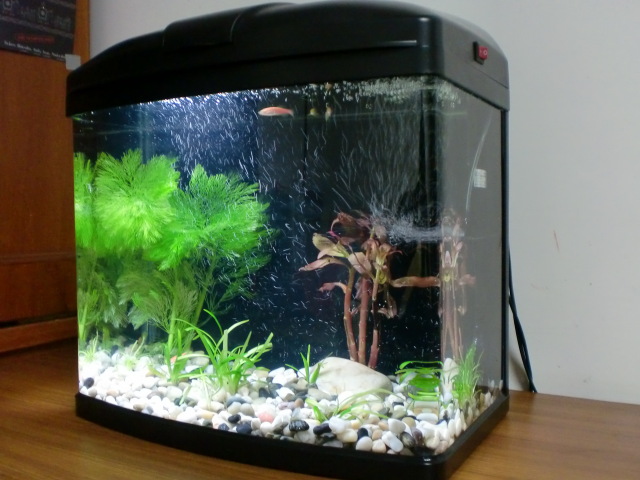 Tank mate for Red Danios
QuestionFish tank
QUESTION: Hey Jamie,
I bought
Tank mate for Red Danios
QuestionFish tank
QUESTION: Hey Jamie,
I bought
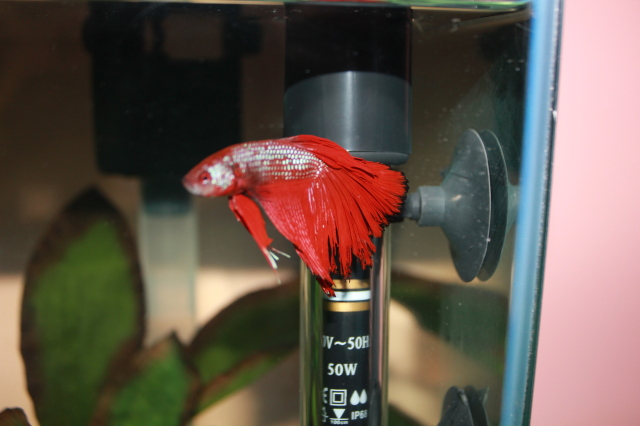 Betta fin problem?
Question
Fins
Hi Jaymie,
I contacted you a few
Betta fin problem?
Question
Fins
Hi Jaymie,
I contacted you a few
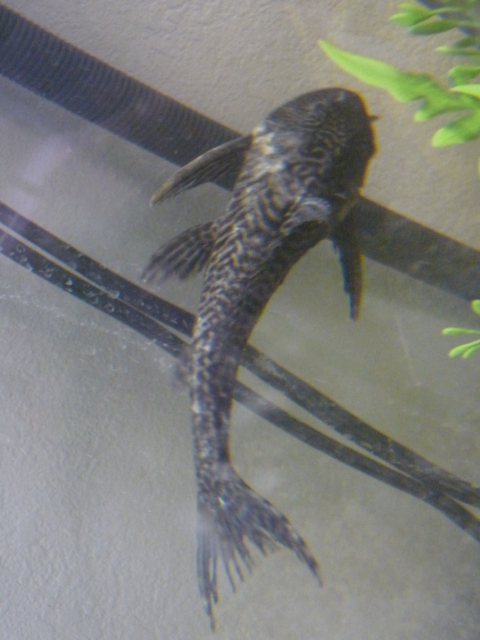 Plecostomus still sick
Question
sick pleco
I have a 70 Gallon tank 4 large tin
Plecostomus still sick
Question
sick pleco
I have a 70 Gallon tank 4 large tin
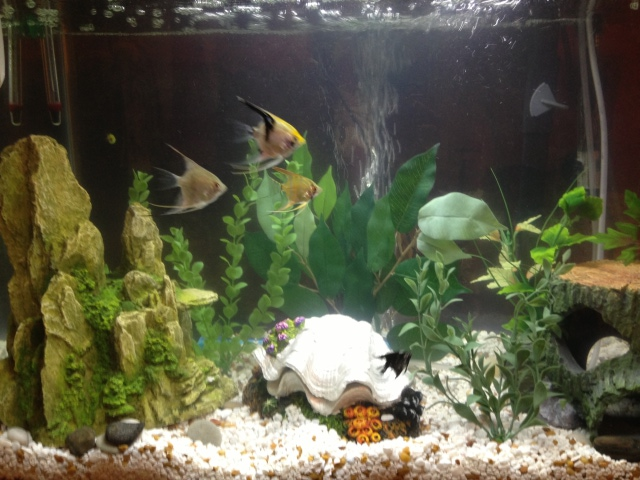 PLEASE HELP! Trouble in both my tanks!
QuestionMy angelfish tank
Bruise under coy angel
PLEASE HELP! Trouble in both my tanks!
QuestionMy angelfish tank
Bruise under coy angel
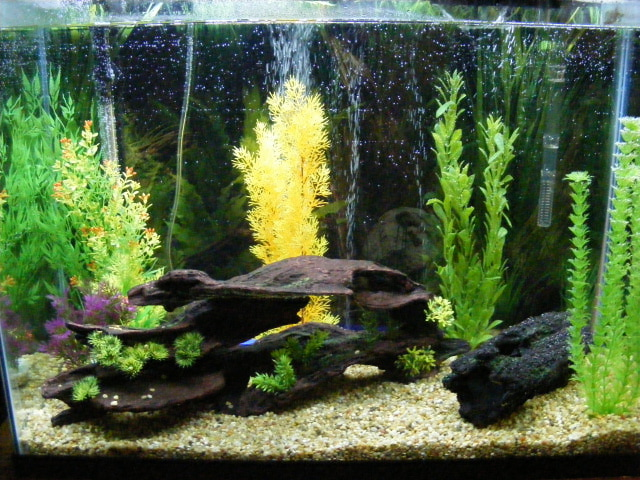 bubbles
Question
bubbles bubbles 2
Hello Richard,
bubbles
Question
bubbles bubbles 2
Hello Richard,